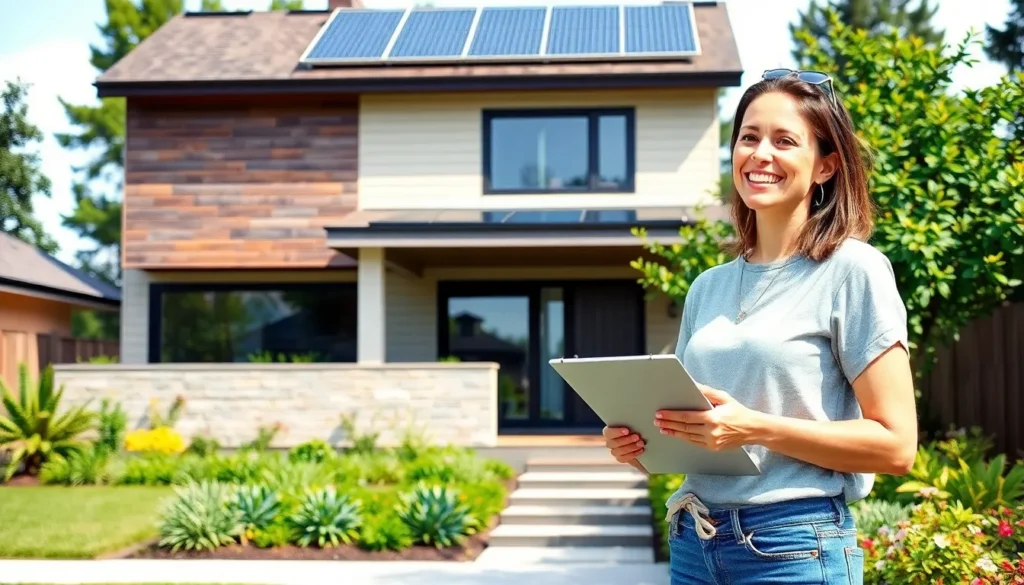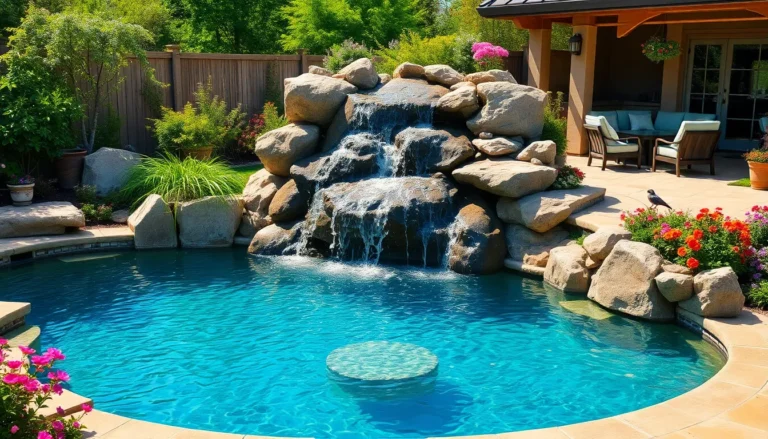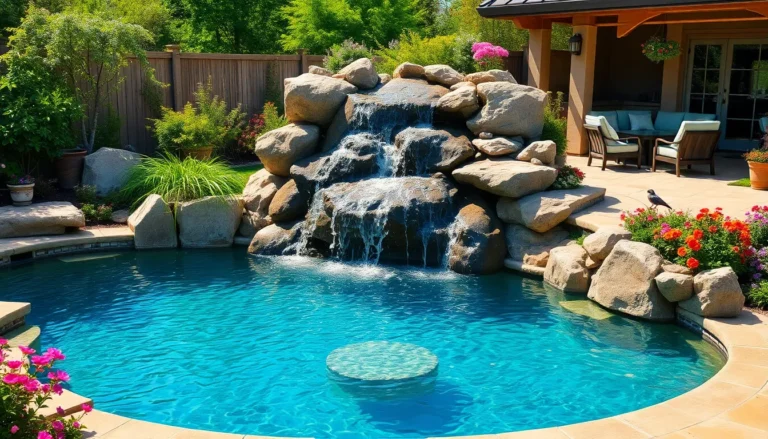Table of Contents
ToggleInvesting in an eco-friendly home isn’t just about saving the planet; it’s also about saving some serious cash. Imagine a house that not only keeps your energy bills low but also makes your neighbors green with envy. With the right choices, going green can turn into a golden opportunity.
From solar panels that soak up the sun to energy-efficient appliances that hum along quietly, eco-friendly upgrades are the ultimate power moves. Not only do they elevate your living space, but they also boost your property value faster than you can say “sustainable living.” So why not dive into the world of eco-friendly investments? It’s a win-win for your wallet and Mother Earth, and who doesn’t want to be the hero in this story?
Understanding Eco-Friendly Home Investment
Investing in an eco-friendly home encompasses various sustainable practices that enhance property value and reduce environmental footprints. This approach focuses on integrating green features into housing.
What Is Eco-Friendly Home Investment?
Eco-friendly home investment refers to the purchase or upgrade of properties designed to minimize energy consumption and environmental impact. It includes aspects like using renewable energy sources, maximizing energy efficiency, and incorporating sustainable materials. Such investments appeal to environmentally conscious buyers and align with global sustainability goals.
Benefits of Investing in Eco-Friendly Homes
Investing in eco-friendly homes yields multiple financial and environmental benefits. These properties often experience higher market values due to reduced operating costs, attractive energy-efficient features, and tax incentives. Energy savings can lead to lower monthly utility bills, making green homes financially appealing. Healthier indoor environments result from improved insulation and ventilation, promoting better well-being. Additionally, eco-friendly investments support community environmental initiatives and align housing practices with sustainable development goals.
Key Features of Eco-Friendly Homes
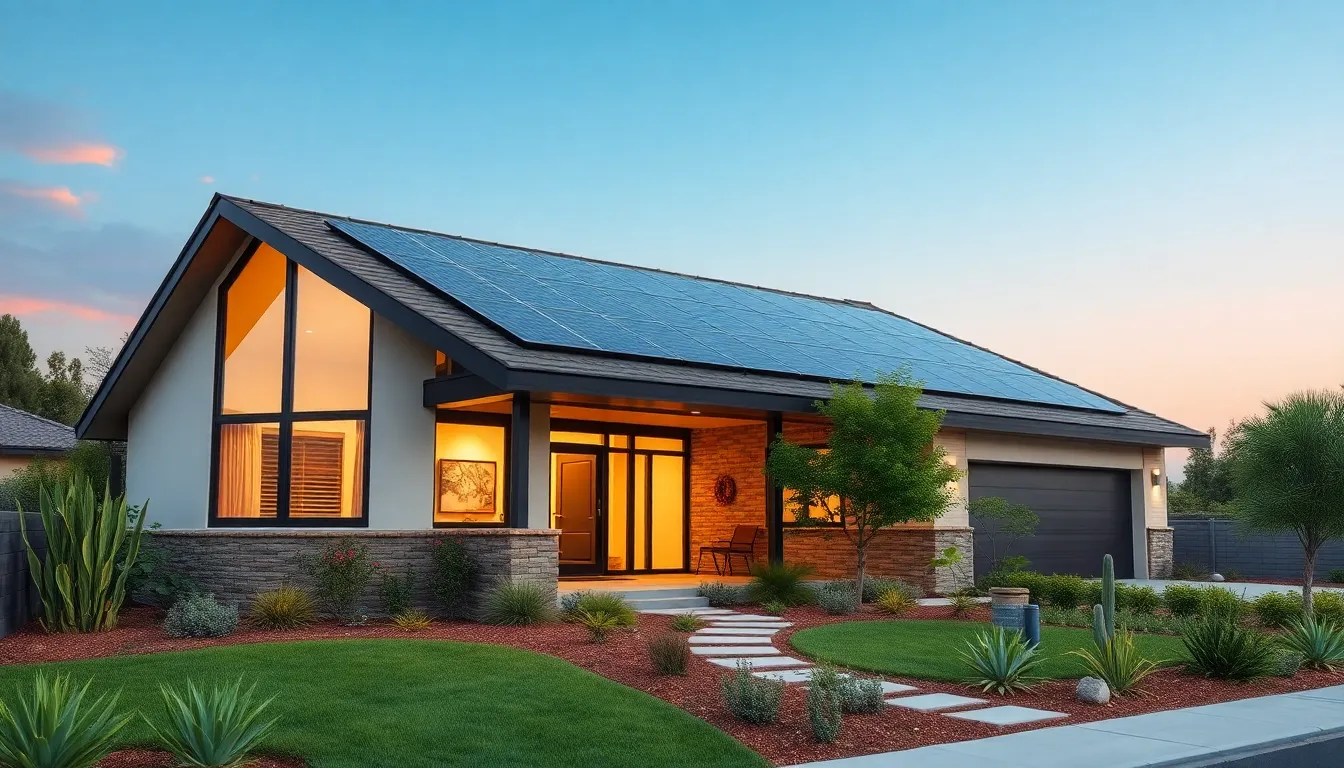
Eco-friendly homes showcase features that promote sustainability and efficiency. These attributes contribute significantly to their market appeal and environmental impact.
Energy Efficiency
Energy efficiency stands as a vital feature of eco-friendly homes. Efficient insulation minimizes heat loss, promoting comfortable living while reducing heating and cooling costs. High-performance windows enhance energy retention, preventing drafts. Energy-efficient appliances, certified by the Energy Star program, consume less energy, lowering utility bills while offering high performance. Homeowners investing in proper energy management can expect reductions in their carbon footprint, contributing to a cleaner environment.
Sustainable Materials
Sustainable materials form the backbone of eco-friendly construction. These materials prioritize renewable resources, featuring bamboo, recycled metals, and reclaimed wood. Homes constructed with such materials minimize environmental impact and reduce the consumption of new resources. Non-toxic paints and finishes enhance indoor air quality, creating healthier living environments. Eco-friendly homes often utilize insulation made from recycled materials, further enhancing sustainability efforts while boosting overall energy efficiency.
Water Conservation
Water conservation measures are essential in eco-friendly homes. Low-flow fixtures, including faucets and showerheads, significantly reduce water usage without sacrificing performance. Rainwater harvesting systems collect and store rain for irrigation and non-potable uses. Efficient landscaping, incorporating drought-resistant plants, minimizes water consumption while maintaining aesthetic appeal. Implementing graywater recycling systems can further decrease water waste by repurposing water from sinks and showers for irrigation.
Financing Options for Eco-Friendly Home Investment
Several financing options exist for individuals looking to invest in eco-friendly homes. These options provide financial support while promoting sustainable living.
Green Mortgages
Green mortgages cater specifically to those buying or refinancing eco-friendly properties. These loans often come with lower interest rates, enabling homeowners to save on monthly payments. Lenders consider energy-efficient upgrades when assessing borrowers, which can increase loan amounts. Properties featuring solar panels or energy-efficient appliances qualify for better terms. These advantages make green mortgages a popular choice for environmentally conscious buyers seeking financial relief.
Tax Incentives and Rebates
Tax incentives and rebates significantly reduce the costs of eco-friendly home investments. Federal and state governments offer various programs to encourage energy-efficient upgrades. Homeowners may claim tax credits for installations, such as solar panels, enhancing affordability. Rebates available for energy-efficient appliances and materials also encourage sustainable choices. These financial incentives lower the overall investment required for eco-friendly home features, reinforcing their appeal.
Evaluating Eco-Friendly Home Investments
Understanding the evaluation process for eco-friendly home investments leads to informed decisions. Investors should consider various aspects including property value and potential savings.
Assessing Property Value
Experts emphasize that eco-friendly homes often command higher market values. Attributes such as energy efficiency and sustainable materials contribute significantly to this increased value. Homes with solar panels or Energy Star certifications typically see a boost in appraisal figures. Additionally, buyers are increasingly focused on sustainability, which has led to a stronger demand for eco-friendly properties. Thus, investing in eco-friendly upgrades can yield notable returns when it comes time to sell.
Long-Term Savings vs. Initial Costs
Investors often question whether long-term savings justify initial costs. Although eco-friendly features can require higher upfront investment, they typically lead to significant savings over time. Energy-efficient appliances lower utility bills, while water conservation systems reduce water expenses. Numerous studies indicate that homebuyers value these savings, willing to pay more for properties promising lower ongoing costs. Over a span of years, the cumulative savings frequently exceed initial investments, making eco-friendly options financially sensible.
Investing in an eco-friendly home is a smart choice for anyone looking to enhance their living space while benefiting the environment. By choosing sustainable materials and energy-efficient upgrades, homeowners can enjoy lower utility bills and increased property values.
The financial incentives available make these investments even more appealing. With green mortgages and various tax breaks, eco-friendly upgrades become more accessible.
Ultimately, embracing eco-friendly living not only promotes personal well-being but also contributes to a healthier planet. It’s an opportunity to make a positive impact while securing long-term financial benefits.
